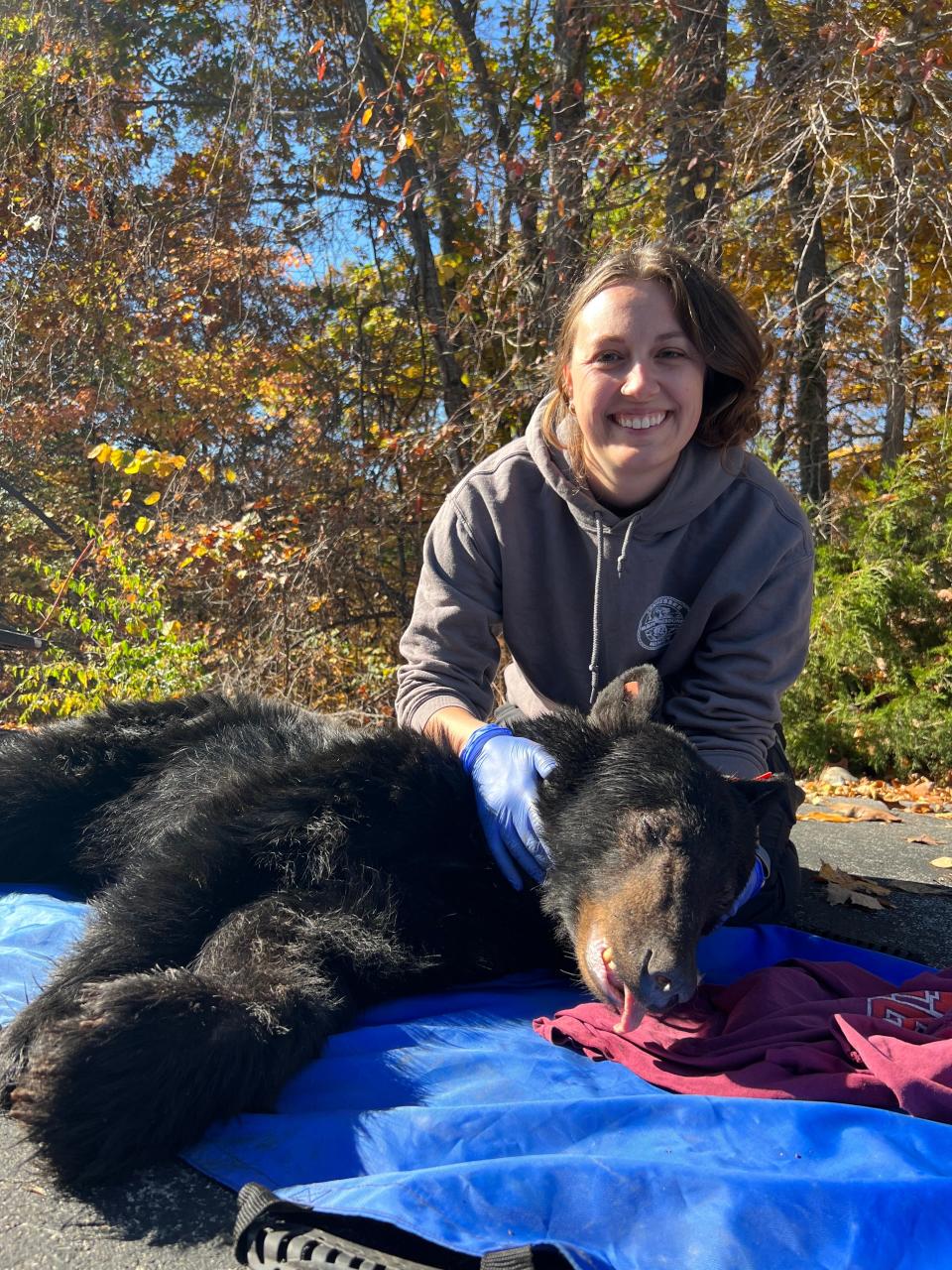Black bears are curious and eat human's trash. That's not good for them or for Tennessee
As the busy summer travel season begins, Tennesseans and tourists will hit the road to enjoy all the state has to offer.
Known for its natural beauty, Tennessee has 13 byways with the designation of National Scenic Byway and/or All-American Road based on their intrinsic qualities that are regionally or nationally significant. While these byways are destinations unto themselves with their archeological, cultural, historic, recreational, natural and scenic features, many choose these routes as a means to travel to one of Tennessee’s 56 state parks or 13 national parks.
Winding through mountains, valleys and forests, connecting historic small towns, pastoral land, and lakes and rivers, these byways pass through habitat rich with wildlife. And there’s no other animal that exemplifies the wilderness experience in Tennessee like the black bear.
Historically, black bears roamed the entire state. Today’s population of about 5,000 to 6,000 are mostly found in East Tennessee and along the Cumberland Plateau, though they are slowly expanding their reach into Middle and West Tennessee.
Bears can lose natural fear of people through trash
As one of Tennessee’s state treasures, seeing a bear in the wild can be a special and exciting moment. It’s important to remember that they are wild and may be unpredictable. Attacks on humans can happen, though these are rare. Bears are most active now in the late spring and early summer (they also become more active again in the fall), coinciding with increased summer travel.

Tennessee Wildlife Resource Agency (TWRA) alone receives about 1,200 calls each year regarding black bears, with 80% of the calls related to bears seeking out trash.
According to TWRA Black Bear Support Biologist Janelle Musser, bears that have access to human-provided food sources may develop health complications. Bears have been found with internal obstructions from consuming trash, and cubs have been reported with containers stuck on their heads.
Importantly, bears that have access to trash can lose their natural fear of people, leading to increased bear-human conflicts. This may cause bears to exhibit dangerous behaviors such as opening vehicle doors and approaching people for handouts.
Additionally, bears – and other wildlife – that travel to access food litter pose risks to both animals and people. Musser reminds travelers that food waste like apple cores and banana peels should be disposed of properly, so they do not attract animals to roadways, campsites, hiking trails, and other heavily human-populated areas.
Bears in Middle Tennessee: How to avoid a trash buffet as population rebounds
Partnership with Nobody Trashes Tennessee offers a solution
To keep Tennessee roadways and natural areas clean and safe, while also minimizing human-bear conflicts, TWRA has partnered with the Tennessee Department of Transportation’s Scenic Byways and Nobody Trashes Tennessee litter prevention campaign, to offer residents and tourists tips for co-existing with bears and the importance of proper waste disposal.
As part of the campaign, TDOT has installed 80 Nobody Trashes Tennessee-branded bear-proof trash cans along seven of the state's 13 scenic byways, including Great River Road, Woodlands Trace, Tennessee River Trail, Cumberland National Scenic Byway, Sequatchie Valley National Scenic Byway, Cherohala Skyway and East Tennessee Crossing Byway.
The containers are specifically designed to withstand the curiosity and strength of bears, ensuring that waste is securely contained, and wildlife remains unharmed.
Enjoy the seasonal splendor of Tennessee this summer by traveling along a scenic byway for the best of what the state offers – natural beauty and an abundance of wildlife. And remember to stash that trash and keep bears wild!
Jimmy Granbery serves as chairman of the Tennessee Fish and Wildlife Commission. To learn more about the bear-proof trash cans campaign, including safety tips, resources and information on minimizing many unnecessary and potentially dangerous bear encounters, visit bearwise.org, tn.gov/twra, and nobodytrashestennessee.com. Any aggressive behavior by black bears may be reported at: tn.gov/twra/law-enforcement#accident.
This article originally appeared on Nashville Tennessean: Black bears want your trash, but it's not good for them or Tennessee

